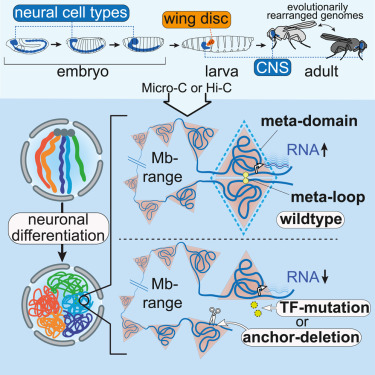
A team of researchers from the University of Lausanne, EPFL, the University of Warsaw (UW) and Princeton University has described a new mechanism of genome folding in fruit flies, reports the UW.
A team of researchers led by Prof. Maria Cristina Gambetta of the University of Lausanne, Dr Aleksander Jankowski of the UW’s Institute of Computer Science and Prof. Michael S. Levine of Princeton University, presented a previously undescribed level of genome folding in the journal Cell.
The scientists discovered that in the nervous system of the fruit fly Drosophila melanogaster, distant pairs of domains interact with each other over distances of up to half a chromosome, forming so-called metadomains. Within these, specific gene promoters and regulatory elements are close to each other, despite being located dozens of topological domains apart, as measured along the chromosome. Genes associated with these metadomains are responsible for important processes in neuronal development, including axon guidance and cell adhesion.
Read more:









